Today is Contemporary Analysis (CAN)’s 10th birthday!!! Although we are not the company we started back in 2008—different logo, different owners, new leaders, new data scientists, even a new way to serve up data science,—we still have the best team in the region and now 10 years of wisdom of how to implement, build, and train data scientists as well. Let us help — even if it is just a phone call for advice. Our goal is to help every company in the region use data science to be competitive in their niche.
Also, stay tuned for our upcoming article on CAN via 2008, 2018, and in 2028. The world is going to be an exciting place for data science in 10 years and we are here to help you get there.
#Celebrate #CAN10
All posts tagged: hs
Empower the great the build something greater.
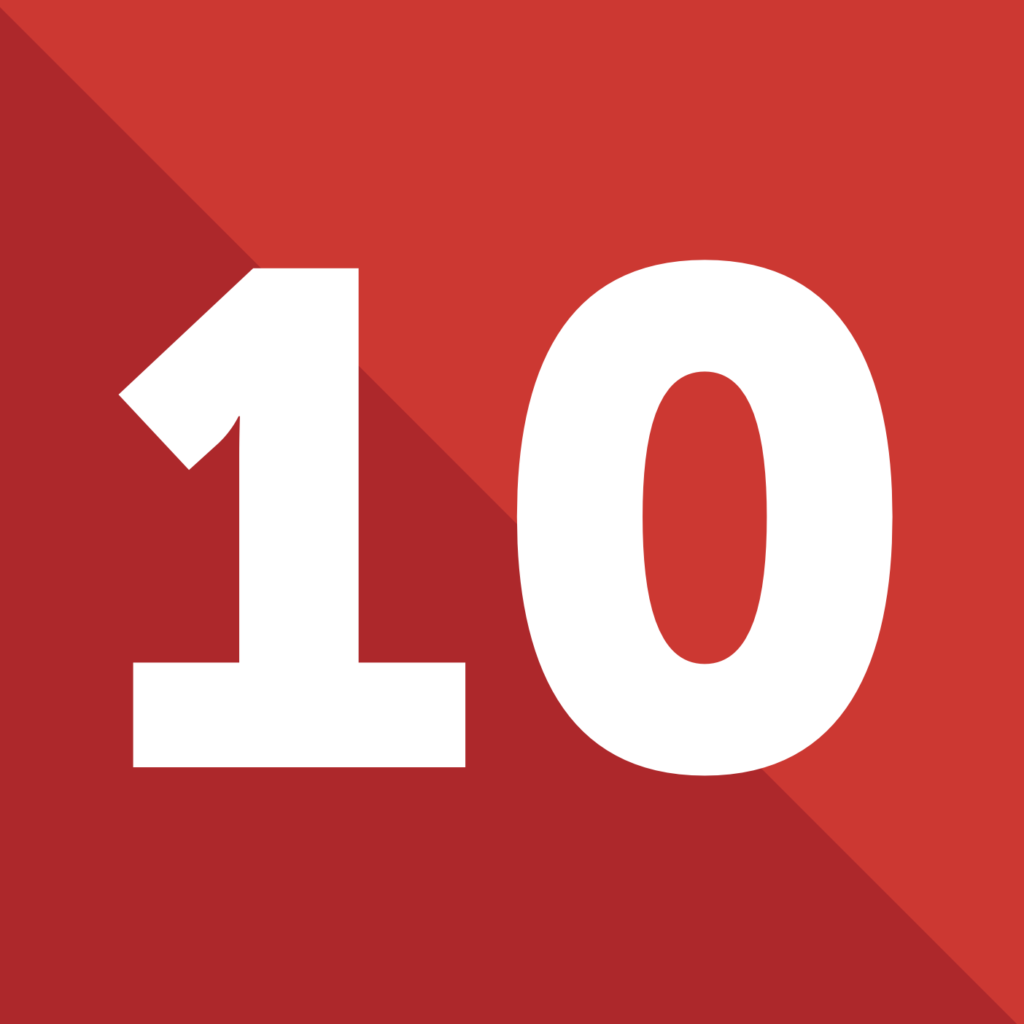
CAN turns 10!
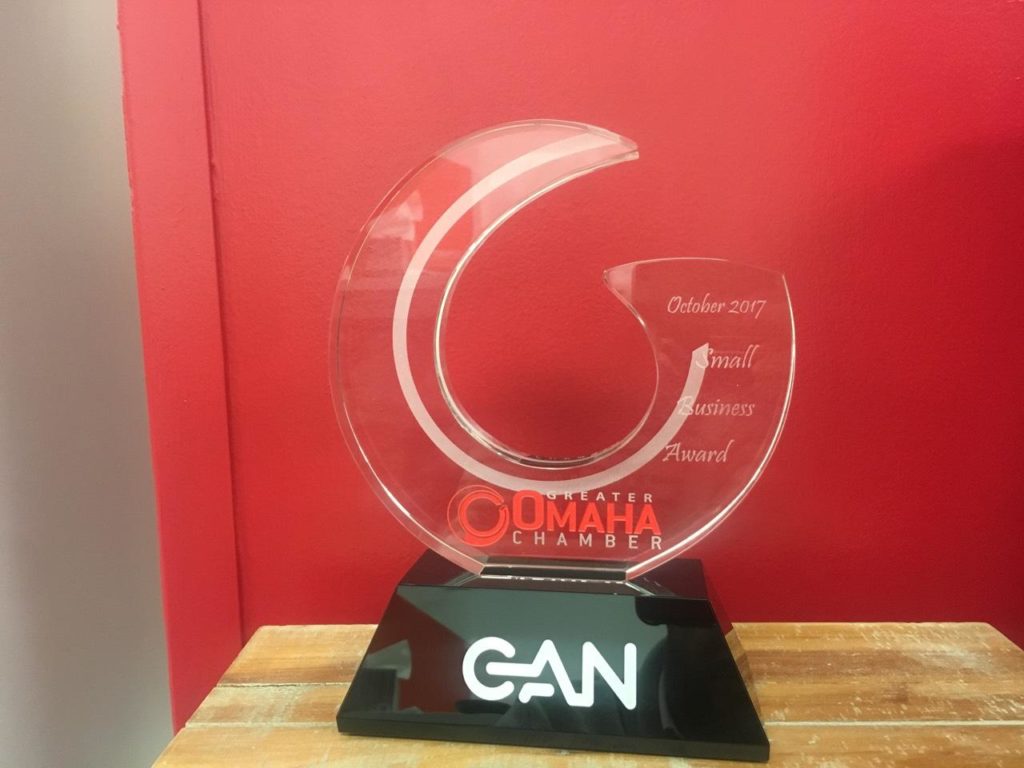
Contemporary Analysis Awarded Small Business of the Month
Recently, Contemporary Analysis (CAN) was presented with the Greater Omaha Chamber’s Small Business of the Month award. It means a lot to be recognized for the hard work the team has done over the last year improving how companies start and scale data science internally.
The Problem
On the consulting side, CAN has spent most of its 9+ years implementing Data Science in the traditional format: bidding via proposals and statements of work. While we still make bids and builds via proposal, we realized a lot of companies that need data science have a difficult time formulating their need into a written document. They don’t know where to start, what they need, or how to scope time and materials. Not having a statement of work presents a problem for traditional consulting. Even when they did understand how to build a needs document, an outside vendor wasn’t what companies wanted. Their desire was to own their own analytics team. We couldn’t agree more.
Once they had decided to make data science an internal strategy, companies hired a senior-level data scientist. This was due to the fact that the person needed to be all things for the department for a long time until it showed an ROI and would be granted abudget to hire a team. This required the first data scientist to be a programmer, database manager, mathematician, data visualist, data science strategist, and implementation manager. This came with a whole new set of problems. A person experienced enough to do all things is expensive ($150k+ salary), hard to find (time to hire is 6+ months), implementation requires a philosophical change in problem-solving (reactive to proactive), and scale requires a new management process (Agile is ineffective). It is simply too much for one person to be successful.
We realized we had to change how companies implemented data science. They needed a fully functional team inside their company from day one and for a time requiring an outside vendor, but needed to manage the process inside their company for company buy-in and scalability moving forward. A new way of implementation had to be invented.
The Solution
We came up with something different, a method with immediate results and little risk. Instead of hiring senior-level talent out of the gate, use a full team of consultants to help you stand up your group. Then find, hire, and train someone to run the team once it’s already up. This means you get multiple people (with no recruiting and no time to hire) and expertise (understanding how to implement and manage all aspects of the team) immediately on day one – all at a price similar to hiring one senior-level data scientist.
Additionally, there is a benefit of when it’s time to find, hire, and train someone to run the team. Because some of the heavy lifting is being done by the vendor, a person skilled in data science implementation (a data science strategist) can now be hired to run and scale the department. This person is usually much less expensive than a senior data scientist.
We pioneered this thought process at a local bank in Treynor, IA. TS Bank is one of the fastest-growing banks in our area. They reached out to CAN in late 2015 asking how they could be better at predicting what is likely to happen not only in their portfolio but also in marketing, sales, operations, M&A – almost every function of their business. They already had business intelligence but didn’t know how to make the transition from reactive to proactive. That’s when CAN stepped in.
CAN became their data science team for 18 months, deploying 4 data scientists skilled in NoSql, data visualization, coding, and computational modeling. We served as their team until they were able to stand by themselves. Now, just 2 years later, they have their own team of two data scientists, a data strategist, a business intelligence analyst, and a database engineer. TS Bank now has a better data science team than banks five times their size, and they have plans to hire more. With their team, augmented by ours only when needed, TS Bank can make decisions faster and less expensive than their peers. They know when to buy. They know when to sell. They have better risk analysis. Their business intelligence team, now coupled with their predictive analytics team, is the poster child for how to start, grow, and scale data science in an organization. This pilot allowed CAN to better understand how to implement the “Us then You” strategy.
Today CAN offers three approaches to improving outcomes with data science:
- Data Science as a Service (to get you started)
- Training (to make it yours), and
- Staff Augmentation (to keep your need fulfilled, even if that need is temporary).
Data Science as a Service (DSaaS)
CAN begins the process of serving its clients by initially and temporarily serving as their data science team. Day one, we show up and provide our client with an established data science team that knows exactly what they’re doing, knows how to dig into their data, and knows how to cut through the red tape.
Different than most consultants is the fact that from our first second on the job, there is a timer running. We establish an agreed-upon milestone and, once that milestone is reached, CAN will give you everything you need to have your own data science capabilities: all the data, all the knowledge, no black box, and nothing secret.
Training
About midway through DSaaS, CAN will identify, hire, train, and place a person to run everything CAN is building. While this person can be and often is from outside the organization, sometimes it is an internal person who just needs a few additional skills. When this happens, there is an additional savings of time and money as this person required no hiring process, no internal training of tools, is already a culture fit, and requires no spin-up time figuring out internal politics.
To formalize this training process, CAN built a training curriculum designed to help individuals already in the workforce gain necessary and valuable skills in the four key parts of data science: coding, database, statistics and computational modeling, and data visualization. We call it the Omaha Data Science Academy. While initially only for individuals hired to manage the data science portfolio after CAN has reached the milestone, CAN has opened enrollment to the community so they too can have data scientists for job openings at companies with established data science teams. The Omaha Data Science Academy’s new goal is to train a data scientist for every company in Omaha.
Staff Augmentation
Once established, teams like those at TS Bank aren’t finished building. It took TS Bank 24 months before they felt they had enough talent to cut CAN loose. And even then, CAN still helps out from time to time, providing talent for project work so the company can continue its lean data science team while retaining the talent and expertise to do the high-level or high-speed need projects. Because CAN offers staff augmentation in addition to DSaaS, companies can hire the senior-level talent much further down the road and not fear not have the senior-level thinking to tackle the hard projects as they arise. CAN also offers entry-level data scientists allowing extra staff for those projects that require hours of work, not level of expertise. In this way, CAN closes the loop of need making sure at all points, a company can run a data science team of any size and make noticeable gains from the insights gathered by having a team.
CAN’s new way of data science team implementation lets a company gain access to the decision making of their ability without the fear or risk of single person dependence. It creates better data science much faster with higher ROI than traditional implementation with the helping hand of a company who has done data science for years.
Us then You will revolutionize Data Science.
Are you ready? Reach out to see how we can help.
CAN provides insight to all teams as they grow and develop. We have completed over 150 projects across 100+ companies, and have been the data science teams for 3 companies in the proof of concept stage, 2 in implementation in past years, and 5 more planned for 2018. We have the experience and wisdom necessary to help companies navigate the new kind of management necessary in data science.
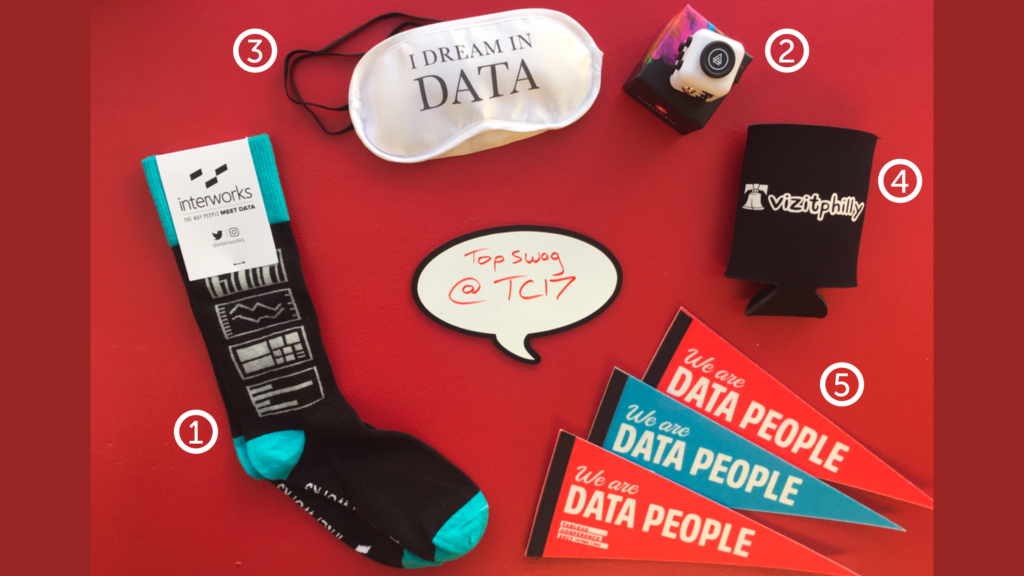
Top Swag at TC17
CAN recently got back from Tableau’s 2017 customer conference, affectionally shortened “TC17”. I brought back several things from the week in Las Vegas: a couple Tableau tips and tricks, several new connections within the Tableau community, and of course, some swag.
In no particular order, here are the top 5 swag (swags?) I picked up at Tableau Conference 2017.
① Interworks Viz Socks
In a world of suit and ties, socks can be a great way to show off some pizazz while remaining professional. I wish I had grabbed 6 more pairs because I can see myself wearing these every day of the week!
② Pluralsight Fidget Cube
That didn’t take long. Within a year of invention, fidget cubes are now officially branded swag. Pluralsight’s fidget cubes are perfect for mindlessly fidgeting around while thinking through your next great visualization.
③ Data Sleep Mask
This was a surprise from the Tableau Partner Summit on Monday. Tableau was kind enough to provide its partners with a TC17 Rally Pack that contained cool, yet practical swag like this to help make sure they were able to fully recover each night of the conference.
④ VizItPhilly Koozie
Shoutout to the VizItPhilly crew (specifically Corey Jones) for supplying me with this neat koozie! Without it, my hands surely would have frozen from holding craft beer cans during Data Night Out.
⑤ “We Are Data People” Pennants
These small felt pennants are perfect for selfies and are a great way of reminding your coworkers that you are in fact a real data person.
*Bonus – Mini Speech Bubble Whiteboard
Another item in the Tableau Partner swag bag – a miniature whiteboard version of the large speech bubbles with fun data phrases that are seen in about 80% of Tableau users’ Twitter avatars.
Did we miss any top swag from the conference? Let us know in the comments below.
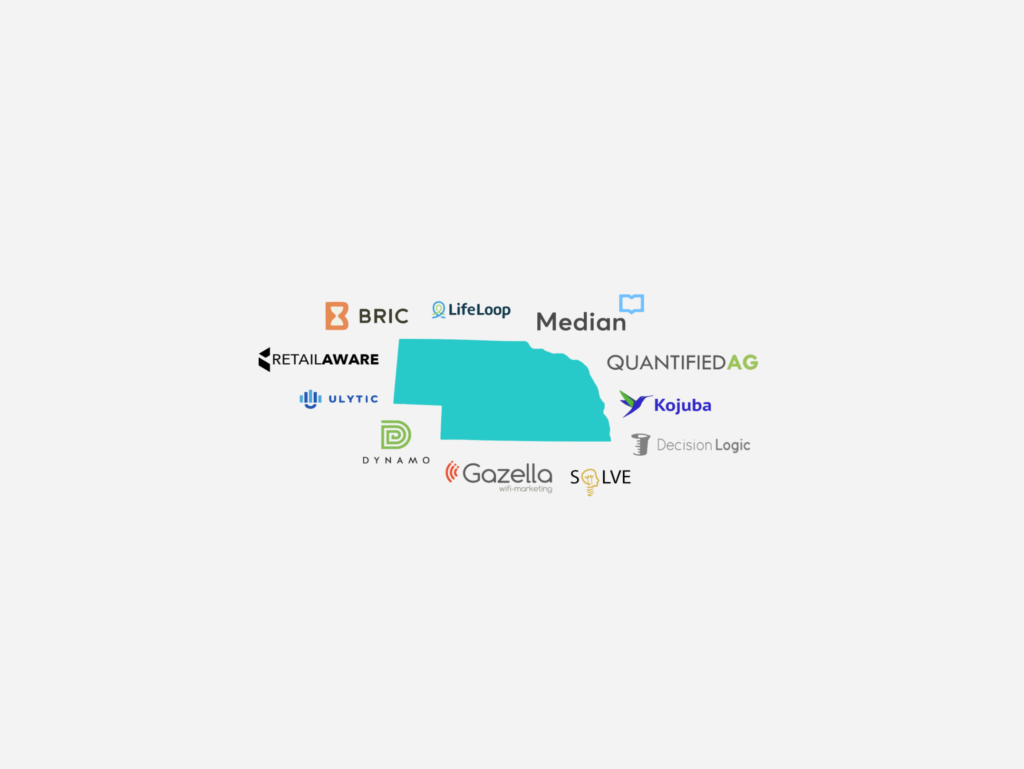
Eleven Nebraska startups that could be the next big thing
Nebraska is not California. Omaha is not San Francisco. This sounds glaringly obvious but sometimes entrepreneurs in the Midwest get caught up in proving that we’re the same as any other startup scene in the country. But we’re not… and that’s okay! It doesn’t mean we don’t have big ideas here. It doesn’t mean there’s no tech leadership here. And it certainly doesn’t mean you can’t build a disruptive tech company here. The Silicon Prairie may not have the same quantity of startups as Silicon Valley, but we have just as much quality. You just have to know where to look.
Nebraska has actually been pretty good at creating a startup and building it into a billion dollar company. Did you know that the Omaha company ACI invented the ATM’s software that you still see each time you use an ATM? Despite its spectacular demise, many people forget that Enron was created when the CEO of Northern Natural Gas (an Omaha company) decided to merge his startup company with Houston Natural Gas. Inacom was a Fortune 500 company (albeit briefly) meaning Omaha has had 6 Fortune 500 companies. West, Kiewit, Mutual of Omaha, Solutionary, TD Ameritrade, Sojern–all got their start in Omaha. We just haven’t started one in while. Well, that is changing.
We here at CAN sometimes take for granted all the cool companies and people we work with every day. In our building alone, there is a collaborative incubator filled with fast growing tech startups, multiple small companies, and not one, not two, but three code schools. While we know of this amazing ecosystem, sometimes we forget that a lot of people in Omaha and Nebraska don’t even realize this startup niche even exists.
We view that as an issue.
Our community needs to know that Nebraska is a place to brag about. While certainly not the hotbed of entrepreneurialism as Boston, New York, and San Francisco, we do have success stories that we can be proud of. And we think we’re about to have a few more. Because we are always looking for great ideas, we decided to compile a list of Nebraska companies we have come across that have a good chance at fundamentally changing their niche and becoming a huge success.
Why Startups?
First, we need to address “Why Startups?” A startup by definition is a small entrepreneurial business that sort of “pops up” to fit a need in a particular market — often times technologically based. If successful it tends to grow rapidly and is usually founded by forward-thinking and innovative people. Stereotypically, these people are young college grads who are trying to apply their education in a new way, but the truth is that a lot of startups begin by professionals who have worked decades in a field. This means that by definition, a startup is a new idea, built to change the world (or at least their part of it).
The Big Four
Any list of the top startup companies in Nebraska must include the Big Four. They are successful and well known outside of the startup ecosystem. At this point, they are all established in their respective industries and have begun scaling their products. They are (in no particular order):
Flywheel – Flywheel got started back in 2012 by Dusty Davidson – and is now a premier WordPress hosting company for designers and artists.
Hudl – The leading software company for coaches and athletes (and doing some amazing data science work), Hudl was founded by David Graff, Brian Kaiser, and John Wirtz in 2006.
BuilderTrend – BuilderTrend is a residential construction cloud system founded in 2006 by Dan Houghton, Jeff Dugger, and Steve Dugger and is one of the largest non-VC funded software companies in the US.
Bulu Box – Bulu Box provides you weekly box, filled with cool new samples to try, delivered to your doorstep with an easy online setup. It was founded in 2012 by two UNL grads, Paul Jarrett and Stephanie Jarrett.
It’s easy to forget but these companies were all much smaller startups a few years back. They show that with the right product and people you can build a successful tech company in Nebraska. But you didn’t read this far to hear about the companies you already know. Without further ado, here are:
Eleven Nebraska startups that could be the next big thing
Kojuba – Kojuba was the brainchild of James Rolfsen back in 2015. What is Kojuba and what makes it a startup to keep tabs on? We let Rolfsen answer this:
“Have you ever worked in a group of some kind and at the end of the project, the wrong people got the credit for doing the work? We all have. This represents what we call an “inefficiency of performance assessment.” The consequence is often that hard working people don’t get recognized for their contributions and that toxic individuals who undermine the team evade detection and sometimes even get promoted. Specifically, the “social contributions” that individuals make to a team are extremely difficult to delineate and almost impossible to quantify. Kojuba solves this problem. We analyze the behaviors and relationships of employees in organizations in order to paint a precise picture of how work gets done. Sound like magic? Fortunately, it is not. (I’m not sure if magic is scalable.) It is a proprietary combination of network science and machine learning that gives us the power to see inside the soul of organizations – and to deliver actionable guidance to our corporate customers.”
Ulytic – Ulytic was founded in 2015 by Billy Martin, who has an impressive background in marketing. Ulytic is a video processing platform that “allows traffic engineering and data collection firms to quickly upload footage and receive highly active traffic count reports with lightening fast turn around.” No more trucks taking traffic counts by clicker for three hours, one day a year and extrapolating out that info to be the traffic pattern for that corner every day. Now you can capture real numbers for all times of days, for all days–Including things like concerts, football games, school plays, and carnivals. You now can collect real data on events without extrapolation of anything. The funny thing is, they already have the cameras, we are just providing a way to use them instead of a person.
LifeLoop – “Keeping you in the loop of your elderly family member”. The idea for LifeLoop came from a personal situation of Amy Johnson, who founded the startup in 2015. Their mission is as follows “Our number one goal is to improve the care and overall experience of residents living in senior living communities. they believe this involves creating and fostering great relationships between community staff, residents, and the residents’ families, which results in personalized care and attention.” With calendar management, resident tracking, and a family portal, LifeLoop is certainly living out its mission.
Bric – Bric is quantifying work. Through capturing data on work, projects, skills, and financials, Bric knows what issues companies are having, the true abilities of their people, and which teams work best together. Today they are using this data to help teams maximize their time and talent; however, in the future, they will use this information to recommend products, services, and provide clients with coaching. They are creating a digital business consultant that knows everything about your business, your industry, and can use this to recommend solutions that work. No longer will you have to rely on a consultant’s personal experience or education — but can learn from your own company and industry.
Decision Logic – Ryan Mack is the current CEO of Decision Logic, which began in 1998. Originally designed for Applebee’s, today this restaurant management software serves over 50 brands. The software itself is special because it gives managers a much-needed, one-stop-shop to go see where their money goes, manage the outliers, uncover trends in sales and preparation, and manage staff and ordering. To date, the software has saved its restaurants over $37.5 million in food and labor costs. And that’s just the appetizer (see what I did there?). Over the next few years, they are adding prescriptive analytics and data visualizations that no one currently in the industry has or offers.
Quantified Ag – Quantified Ag is a little different than our traditional tech startup, but perfect for our eco-system. They are in a new field called Ag-Tech–something Omaha does very well. We talked directly to the CEO, Vishal Singh. Here’s what he told us about his startup, and the field he works in:
“Quantified Ag is a precision livestock analytics company located in Lincoln, NE. Think FitBit for cattle! This makes the beef supply better by providing feedlot workers with the tools to identify sick animals sooner and more accurately. Through early detection, Quantified Ag’s technology helps dramatically reduce costs by lowering re-treatment rate and death loss and getting animals back to peak performance faster.
“One area that often gets overlooked [in tech] is agriculture. Which is ironic because this industry is one of the most important things that our state does and does very well. On that note, I feel fortunate that my company is working on a transformative idea in beef livestock production. According to the NE Beef Council, “it’s the state’s largest industry and the engine that powers the state’s economy.” – http://www.nebeef.org/the-beef-story/state-national-facts. Our state also ranks as one of the top beef cattle producers in our country and exports beef beyond our borders.”
Dynamo – At the peak of their careers with a Fortune 500 company, Michelle Wingard and Brody Deren left their careers as regular recruiters to develop something completely different–a new way to recruit and place that focused on quality over quantity. Their mission is to not fill a role with a body that matches a check box, but instead to match openings with people that match each other. Their goal is to get it right the first time. One placement, done. Dynamo is succeeding in discovering news ways of expanding the tech field with a focus on better instead of more.
Gazella Wifi – Eric Burns started Gazella Wifi in 2015 as an automated marketing tool for restaurants and businesses–think fishbowl filled with cards, but without the cards, and without the fishbowl. When customers log in to use the store’s wifi, Gazella is able to capture valuable customer information and provide it back to the owner for use in marketing and sales. Easy to use and customize, Gazella has helped countless restaurants grow their social media reach and customer marketing lists. Their next trick is to provide feedback to the business owner as to which customer would react best to which offer–rewarding behavior and driving sales in areas the store owner wants.
SOLVE – Stephanie Sands of SOLVE spoke to us about her startup’s unique platform. She says: “SOLVE is changing the way companies develop and implement their “people strategy.” The most successful companies recognize that investing in their employees will boost their bottom line. Handing out gift cards, buying a ping pong table, or changing the dress code won’t suffice anymore and especially with the new generation of workers. (Centennials, not Millennials). The key is understanding your workforce, and SOLVE can help you get there. With a background in Organizational Psychology, our team helps companies understand human behavior in the workplace using theory, research, and data to inform best practices. We partner with companies to increase the accuracy of hiring decisions, develop effective leaders, and create great cultures to engage and retain top performers. We also help ensure that those strategies are aligned, consistent, and connected to their culture. Our team provides results-focused services/tools and ongoing, customized support to ensure people problems are SOLVED.”
Median – Median is the newest company on the list, founded only last month (June 2017), but its two founders, Ben Stevinson and Derek Homann are excited about their new venture. Median is a customer service platform specifically designed to make real time support chat as fast as possible. It has built-in custom screen sharing technology that doesn’t require end users to install any special or clunky software. It makes service easy for agents as they can immediately get on the same page as the people they’re helping, instead of wasting time either trying to explain a screen to a customer or a customer downloading a piece of software so they can see their screen. It fundamentally changes the conversation of research and trying to understand what someone is telling you to one of diagnosis and problem-solving. As a beta tester, this one is truly helpful and a much-needed addition to anyone’s toolbox.
Retail Aware – Retail Aware is a joint collaboration of three already successful entrepreneurs Preston Badeer and Keith Fix. They are capitalizing on the newly forming IOT space by providing a new way to collect and use data in the retail space. Especially designed for owners of multiple locations (think franchisees), it gives them a way to see and understand previously untrackable data. Using sensors owners can test marketing effectiveness of store layout, product placement, and new store experiences. They can even A/B test in different stores. The results are given by the minute and displayed in well-designed dashboards.
As you might have guessed, based on what we do, these companies have a common thread. They are all using data to change their niche. It comes in many forms: BI, IOT, Predictive Analytics, Prescriptive Analytics, Machine Learning, and AI. These are just the tip of the iceberg. There are others, many others. Companies like: ScoutSheet, SkyVu, Kiai, and Rodeo Analytics are all on the brink of this list. (perhaps we should have another list next year) All of them are companies that are revolutionizing their niche and are run by bleeding edge leaders focused on using data and tech to update how we do business. In the future, these will be the companies to watch out for and our eleven will be the big companies everyone will have heard of. But, until then, you heard their names here first.
Now go and make sure you brag about these companies to all of your non-Nebraskan friends.
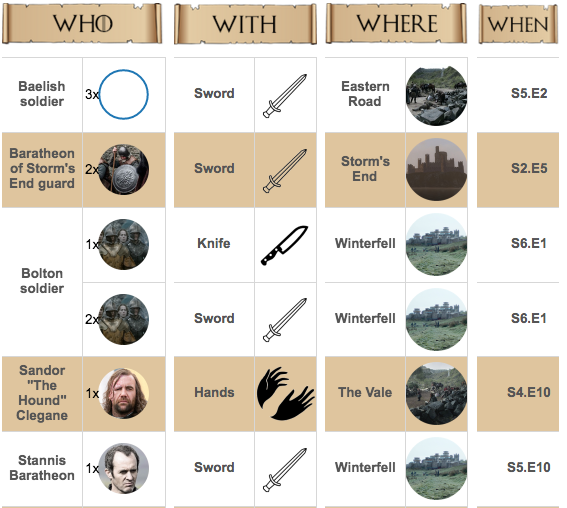
Game of Throne Meets Data Science
Sometimes obsession breads genius. Fans of Game of Thrones have dedicated much time to tracking the deaths, births, twists, and turns of the previous seasons. Now that season 7 has arrived, there are some amazing maps of the story out there. We found one we particularly liked on Tableau Public.
Check it out “Games of Thrones Interactive Death Viz” by David Murphy. Select a character and see how they died, who killed them, and what the circumstances were. Turn it into a game and test your friend’s knowledge too. There may be a few more to add before the season is over . . .
Building From Within
Our staff augmentation model proves that CAN believes in building a data analytics team from within. Our goal is to get a data scientists in every company in Omaha. We want to add value to every business team by training a data scientist with the latest tools of the industry and on the ground field experience.
We found an article called “How to Build a Data-Driven Culture: Develop From Within” on Data Science Central and thought that it reflected a lot of what CAN believes. Check it out and let us know what you think in the comments below.
From the archives "Why Become a Data Scientist?"
Why Become a Data Scientist?
Too few of today’s college students realize they want to be data scientists when they graduate. We believe that data scientists are the future, and that we are on edge of a data science revolution. Therefore, we decided to explain why to become a Data Scientist.
1. As a data scientist, you have incredible access across the business.
Your job of modeling specific business strategies and forecasts requires you to have broad access across your company. People look to you to bridge the gap between business theory and relevant data.
This is a tough role because it requires you to develop and implement a strategy to create consensus in order to implement the results of your work. Since the days of the English Luddites (the anti-technology loom weavers) there have been people who are against technological progress and the efficiency it brings to the economy. The best data scientists will be able to manage the political and social change that comes from their work. Data Science success isn’t only about making work more productive, it is also about helping other people adjust and succeed.
2. Being a Data Scientist is a specialized field.
The requirements to be a data scientist are long, because the decisions they make impact thousands of people. Data scientists usually have a 3.5 GPA or higher. They must have the ability to learn and share several different forms of knowledge, including principles of computer science, high business acumen, and complex math. Learn more about how to become a data scientist.
3. You have the opportunity to work with top level management extremely early in your career.
While this sounds great, it is also challenging. You need to be comfortable giving board room presentations to people who don’t understand what you’re talking about. A specific aspect of your position is to clearly articulate why your results are useful and valid — and do it without math speak. Learn more about presenting business intelligence.
4. The best data scientists never settle, and question everything.
Whereas a statistician starts with a data set and a problem, a data scientist has a more difficult task. A really great data scientist will constantly ask, “are we solving the right problem?” Often the perceived problem won’t match your data, requiring you to look at everything from a new perspective.
A data scientist spends his energy asking machines questions and then trying to validate the answers, instead of spending energy trying to address the question directly. This requires a different work process, one that requires humility and understanding. Data scientist know while they are the ‘go to’ person in the organization, they don’t have all the answers. However, at the end of the day they are still responsible for finding the answers, which is why they get paid the big bucks. Data Science is a complex science as opposed to a simple science.
5. You use artificial intelligence to automate the most routine, frustrating jobs known to mankind.
Instead of doing routine tasks, you can be responsible for automating the most tedious aspects of business, while saving your customers money and making enterprise more efficient.
If you are interested in learning more about Data Science and Predictive Analytics, download our free eBook — Predictive Analytics: The Future of Business Intelligence.
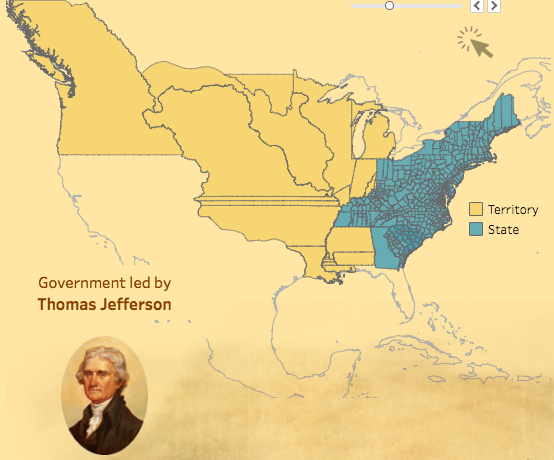
Happy Fourth of July from CAN
Cheers to happy and safe Fourth of July! For our celebration, we’re sharing this Tableau visualization about the growth of our United States.
Data + history = fun. Check it out here.
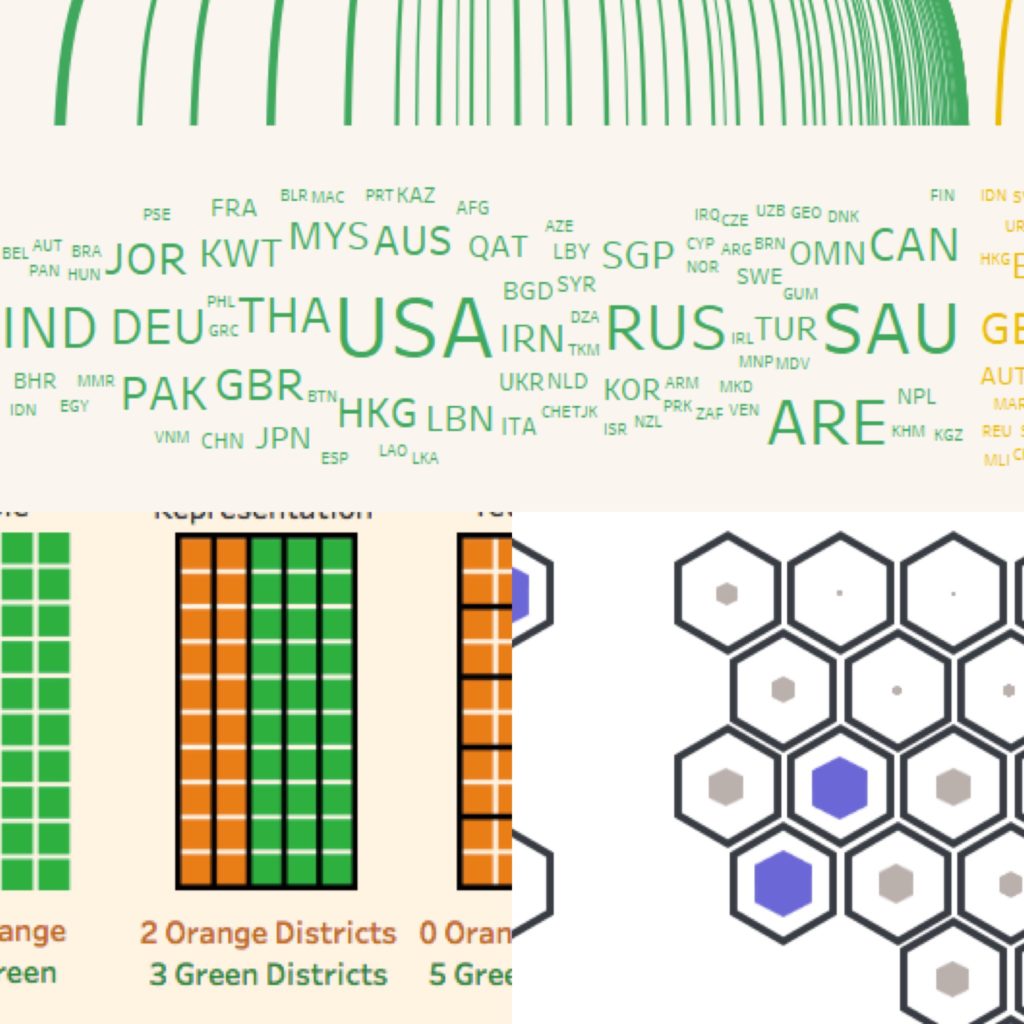
Bloggers Writing About Tableau
Tableau is a data visualization software that CAN uses daily with our customers. We even have our own Tableau expert on staff: Matt Hoover.
But Tableau isn’t just for those who pursue predictive analytics, like us. Tableau is a really awesome tool for anyone who has interesting data: bird watchers, marathon runners, dog walkers, etc. It takes data and makes it look pretty, so anyone can understand it.
It’s fascinating what people can do with Tableau. Are you hooked on the Tableau world? We found a cool article on Data Science Central by Kenneth Black called “Top 10 Bloggers Writing About Tableau”. We’ve re-published that top 10 list below for the Tableau lovers who read our blog.
Tableau bloggers to check out:
Companies:
Individuals:
- Tableau Love, Russell Christopher
- VizWiz, Andy Kriebel
- Tableau Friction, Chris Gerrard
- VizCandy, Kelly Martin
- Drawing With Numbers, Jonathan Drummey
- Paint by Numbers, Peter Gilks
- Alan Smithee Presents, Alan Smithee
- 3adnim8’s Blog, Ken Black
If you find some helpful or interesting information on one of these Tableau blogs, comment below! We’d love to hear it.
From the CAN Vault: History of Predictive Analytics Since 1689
History is a fascination for us at CAN for two reasons. The first is that we find our own history pretty fascinating. Did you know that CAN has been around for 9 years? Pretty cool.
The second reason is that we want the world to know that predictive analytics isn’t a new field of the 21st century. It’s been around for a long, long time in some form or another. Intrigued? Check out a piece we wrote back in 2013: “The History of Predictive Analytics: Since 1689”.
This post is part of our “From the CAN Vault” series that highlights some of the gems of our blog from the past 9 years. These articles are written by current staff but also members of our alumni network. This week’s throwback was written by Tadd Wood, who was a data scientist at CAN for 7 years and now lives in Silicon Valley.

